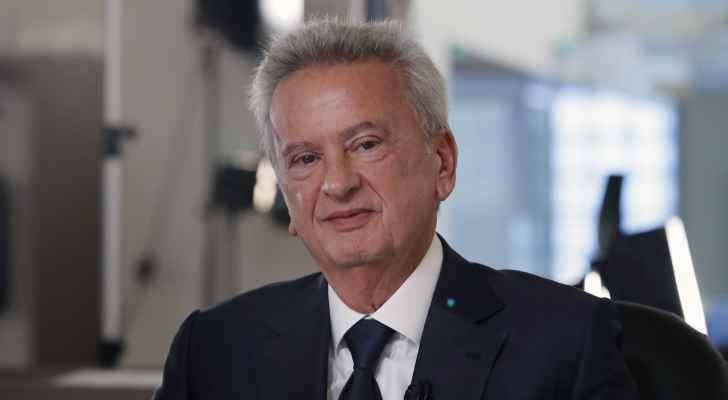On June 24, 2024, Judge Ayman Awdat assigned the second chamber of the Court of Appeals in Beirut, headed by Judge Zolfa Hassan, as the prosecutorial body to follow up on case number 491/2023, concerning the lawsuit by the Lebanese state against the accused, former Governor of the Central Bank of Lebanon Riad Salameh. This assignment came after the Court of Appeals, led by Judge Randa Harrouk and including advisors Emil Shihab and Adlin Safir, had to withdraw from the case due to a motion for disqualification filed by Salameh's lawyer against it.
Subsequently, on June 25, 2024, after the assignment was made, Salameh himself filed a lawsuit for disqualification against Judge Hassan and advisors Lama Ayoub, Nancy Karam, and Lara Kozak, claiming their decision on that date to take hold of and consider case 491/2023 exceeded their authority as outlined in the assignment issued by Judge Ayman Awdat.
On July 2, 2024, the head of the Legal Affairs Division, Judge Helene Iskandar, submitted a request to the court presided over by Judge Zolfa Hassan, asking to record her withdrawal from the appellate decision issued in favor of the Lebanese state on August 3, 2023, by the substitute prosecutorial body led by Judge Malak and members Fatima Majed and Mohammad Shihab. This decision annulled the ruling of the acting investigative judge Charbel Bou Samra, who had decided to release the accused.
Judge Iskandar requested to return the file to the designated investigative judge Bilal Halawi to correct the procedures at the interrogation stage due to a lack of investigation because Judge Bou Samra did not sign the minutes of the final interrogation session of Salameh. She based her request on Articles 16, 18, and 20 of the Ministry of Justice's Regulation No. 151/83, which grants her the right to represent the Lebanese state in courts both locally and abroad and obliges her to take all necessary measures to protect the state's rights. Article 20 emphasizes that any settlement made by the administration in any judicial dispute is considered invalid unless approved by the head of the legal affairs division responsible for state interests, as well as the general director of the Ministry of Justice, who is also a judge. In cases of disagreement, the settlement is referred to the Higher Advisory Body.
Judge Iskandar noted that "the Minister of Finance approved the content of her letter to him, in which she informed him of her joining the public lawsuit referred to Judge Bou Samra by the Beirut public prosecutor Rija Hamouch in a request paper declaring charges against Riad Salameh, his brother Raja, and assistant Marian Hawik, along with others identified by the investigation. The Minister also agreed to all her actions taken to protect the interests of the Lebanese state, accompanied by a copy of the Minister's letter."
Iskandar indicated that "the purpose of her withdrawal from the appellate decision is to revive the case that is stalled in the appellate phase due to the disqualification lawsuits filed by Salameh against the prosecutorial bodies that were assigned to follow up on the file, except for the chamber headed by Judge Habib Mazhar, which was not affected by a disqualification lawsuit for unknown reasons. It is noted that the interests of the Lebanese state necessitate reviving the case and continuing the investigation to reach an indictment ruling, requiring the request to be addressed as swiftly as possible."
Judge Iskandar requested the assigned body "not to withdraw from considering the file for the following reasons: 1- The disqualification lawsuit was filed against the head of the body, Judge Zolfa Hassan, and three advisors: judges Lama Ayoub (a member of the second chamber), Nancy Karam, and Lara Kozak, meaning the lawsuit was submitted against a body that has not yet been formed according to judicial regulations, and it had not taken hold of the file at the time the lawsuit was filed, indicating that no decision had been made regarding the file, rendering the lawsuit non-existent under Article 745 of the Code of Civil Procedure, which mandates the petition be directed against a decision or action taken by a properly formed body.
2- Proper interpretative rules require not misinterpreting the clear and explicit text of Article 745, which directs the specification of the decision or action in question issued by a properly constituted body or a judge attributed with grave errors. Moreover, Article 749 states that the contested decision (in the event a decision to take hold is issued) remains in effect until the general assembly decides to suspend its execution.
3- It is necessary to interpret the last paragraph of Article 751 (Code of Civil Procedure) in accordance with the legislator's intent for including this text, rather than literally, as this paragraph cannot be applied against judges who have not issued any decision or action that could constitute grounds for filing a disqualification lawsuit, since the lawsuit would be void with respect to them due to the absence of cause and subject matter.
4- Continuation of the case must be pursued as there is no cause for halting consideration of it; otherwise, any malicious defendant could halt proceedings regarding their file and obstruct justice by filing a disqualification lawsuit against a body that has not been properly constituted or issued any decision or action, as mandated by Article 745 (Civil Procedure Law).
5- Correctly interpreting legal texts as outlined above fortifies judges against abuses in the use of appeal methods, ensuring the achievement of justice and the revelation of truth in light of the impossibility of amending these texts, which prompt inconsistencies in judicial interpretation and application. Moreover, let honorable judges take the initiative to put an end to obstruction of justice."
It is noteworthy that Salameh's lawyer filed a disqualification lawsuit against President Ayman Awdat, prompting him to assign Judge Samir Aqiqi with the duties of the first appellate president in case number 491/2023.




